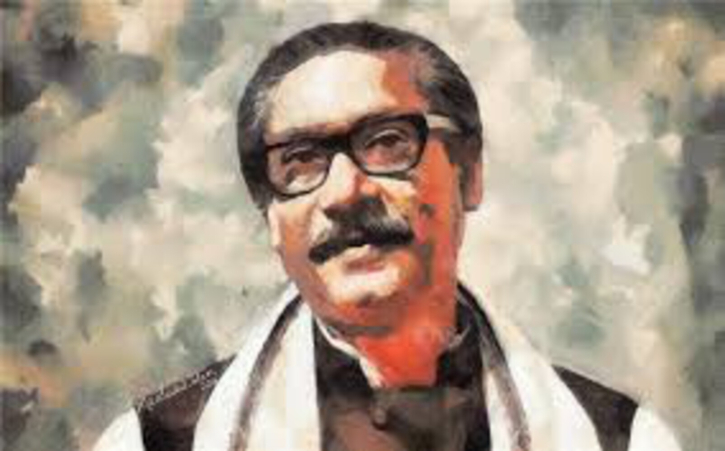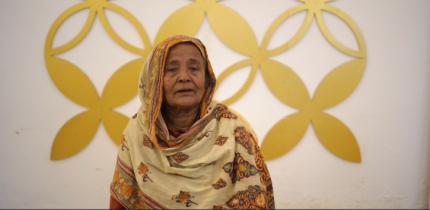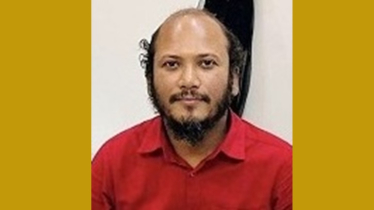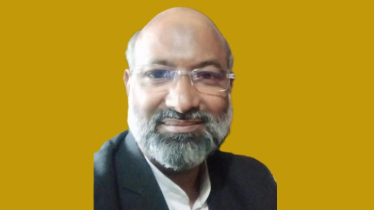
a dark sunrise in the history of Bangladesh. Before the morning light could touch Dhaka’s streets, the scent of gunpowder, the warmth of blood, and the halted screams of a nation’s nascent dreams had already descended upon 32 Dhanmondi. In the sound of those bullets, the breath of the Father of the Nation stopped, and a long chapter of mourning began—one that was not always free.
The first 21 years—from 1975 to 1996—were the era of exiled grief. To the state, which hoisted black flags in August, mourning was rebellion; uttering Sheikh Mujibur Rahman’s name was considered democratic suicide. His image was erased from textbooks, as if leaving blank pages could erase history itself. The state had locked grief in a coffin—its lid forbidden to open, silence enforced. The state without Mujib crafted its own narratives: heroes were replaced, history rewritten, murderers turned into protagonists. The public was taught, “Grief hinders development.” Yet the real obstacle was tying history’s throat, consigning truth to eternal darkness.
In 1996, many lost pages returned. Mourning received official recognition; trials began. We thought that dark chapter was behind us. But by 2025, old shadows have returned in new guises. There are no bullets, no tanks, but invisible chains remain—deciding when grief is “national” and when it is “political.” The same hands that once lowered the flag of mourning now cut its rope with ceremonial knives—names changed, gestures altered, but the blade’s edge remains the same. History silently declares: “I have returned, only my attire has changed.”
Today, mourning is a commodity for many. Doctorates, opportunistic hybrid leaders, and businessmen all speculate on its price, gauging the winds of power. On profitable days, the flag of mourning touches the sky; on risky days, it folds into the dark drawer. The people stand with questions: Is this grief truly ours, or just a date for political bargaining?
Mujibur Rahman’s final speech was a call for economic liberation—a Bangladesh where independence is felt in people’s lives, not just on paper. Fifty years on, how far have we progressed on that path? Inequality, corruption, and nepotism—these invisible foes still sit on the balcony of the state. We offer flowers, deliver speeches, take photos—but the true promise of grief, economic justice and social equality, remains slow in realization.
The mirror of mourning is cruel—it reflects not only Mujibur’s sacrifices and dreams but also our failures. It shows how we have adorned grief with concert applause, how we have tied history to political banners rather than embedding it in the minds of generations, how we have traded love for Mujibur Rahman for personal gains.
Now is the time to preserve grief not just on ceremonial stages but deep in our hearts; to pass it from generation to generation. Mourning becomes strength when it transcends flowers, badges, and speeches, manifesting in action. Otherwise, political bargaining will continue in the shadows of power, and the bloody clash between principle and reality will persist. The shadows of this struggle are clearly visible in 2025.
The nation’s hatred for those who stained 32 Dhanmondi with blood fifty years ago remains indomitable. Hatred is not merely a reaction to murder; it is a vow to protect independence and democracy. As long as Mujibur’s name is spoken in this land, the fire of hatred will burn against those who participated in that bloody dawn—and against those who today carry the conspiratorial torch in new forms. Today’s conspirators no longer wield tanks; they use rumors, disinformation, and diplomatic lobbying. Their aim remains the same—to push Bangladesh backward, to destroy the spirit of the Liberation War. Like the killers of 1975, they want a dependent and weakened Bangladesh.
Fifty years of mourning teach us that the past is not just memory but warning. History’s long sigh should transform into firm vows for future generations. Mourning becomes true strength when it turns into concrete action, not the artificial beauty of vases and rituals. Looking into the mirror of history, we will see not only our reflection but also our responsibility—a responsibility to build the Bangladesh Mujibur envisioned. And if that mirror could speak one day, it might coldly say: “I have seen tears in your eyes… but frost in your heart.” That frost will reveal our pledge: never to accept the politics of betrayal again.
Fifty years of mourning teach us that hatred and denunciation must never be silenced. History demands remembrance; the state must be protected, the spirit of democracy preserved. May the nation’s hatred for the killers always burn, so that they know— as long as Mujibur’s name is spoken in this land, there is no forgiveness, no respite. The fire that blazed on the night of August 15 will continue to burn within us, and denunciation will be our strength—a strength to confront vile killers and stand face to face with history.
Mourning is not just memory; it is a pledge—a firm commitment to justice, integrity, and truth. Tears may fill our eyes, but our hearts will remain unyielding—teaching, guiding, and warning future generations. The hatred born on that dawn of August 15 remains intense, eternal, and will be the undying lamp of the nation’s justice. Killers, destroyers of the country, and falsifiers of history—the nation’s hatred for them is eternal. No matter how masks change, their crimes can never be erased. History will hold them accountable.
Engineer Fokor Uddin Manik
Political Analyst & Social Thinker
Email: [email protected]
TH

.png)







